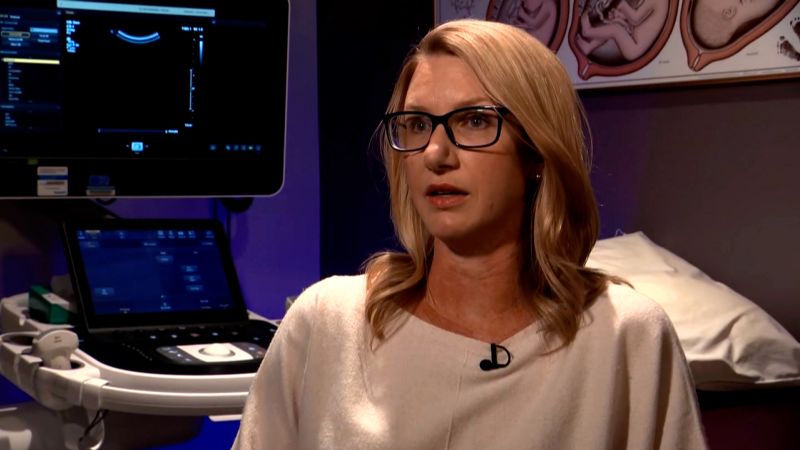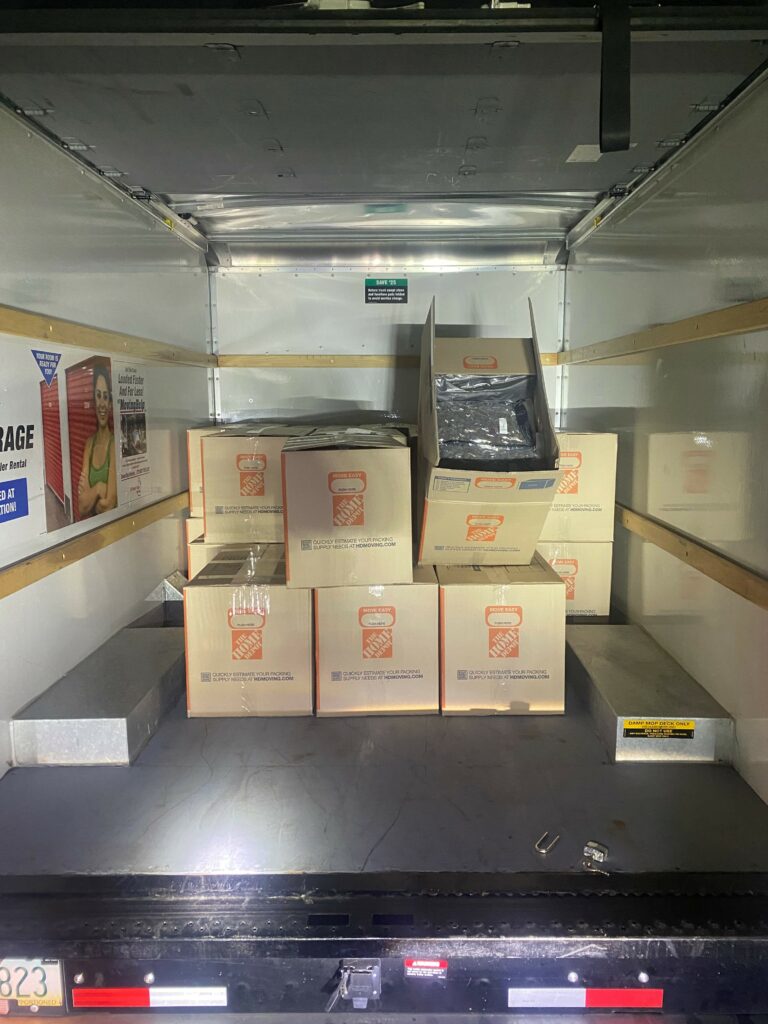Boise, Idaho
CNN
—
The state of Idaho is in the beginning stages of a grand exodus. Doctors – specifically, those who care for pregnant women and perform abortions – are fleeing the state due to new abortion restrictions.
Doctors like Lauren Miller, who has been treating women and performing abortions in Boise for the last five years. Her greatest fear? “Being tried as a felon simply for saving someone’s life,” she told CNN.
Miller specializes in maternal-fetal medicine at the hospital where she works and handles high-risk pregnancies. She treats complications such as ectopic pregnancies, where a fertilized egg is outside the uterus, pre-eclampsia and other dangerous conditions.
After Idaho passed a near-total abortion ban, Miller and other doctors like her say they are unsure about how to continue to do their job.
Last August, Idaho made abortion illegal, with two exceptions.
An abortion can still be performed if the mother’s life is in danger, and in the case of rape or incest, but only after a police report has been filed and provided to the doctor. Even then, it’s restricted to the first trimester. But Miller says the law is still somewhat murky.
“We have a death exception and that is it without any other guidelines,” she said. “If I don’t act fast enough to save your life, prevent you from getting septic, I could be liable for civil cases … malpractice. But if I act too quickly and I’m not 100% certain that the patient is going to die from the complication she’s sustaining, then I could be guilty of a felony.”
“We don’t know what that bar is and no one wants to be the guinea pig first test case of that,” Miller told CNN.
State Representative Brent J. Crane, the lead negotiator on the bill, characterized the law as “a work in progress,” acknowledging to CNN that lawmakers are going to have to “come back and do more work to define what constitutes a risk to a mother’s life in those highly nuanced situations.”
Complicating matters more, the new law, which went into effect in August 2022, allows certain family members of a patient to sue providers who perform an abortion for at least $20,000 if the procedure breaks the abortion law.
Doctors in those cases also face suspension of their medical license, felony charges and even prison time.
Beyond that, Idaho’s governor also signed a law that says anyone helping a minor travel out of state to terminate a pregnancy – without parental consent – is guilty of a crime.
Miller, who is also head of the Idaho Coalition for Safe Reproductive Health, calls it “moral injury.” It saddens her that she cannot provide the care she’s been trained to offer.
“It goes against what we’re taught as physicians to protect the health of our patients,” she said.
So, she decided to move her practice to Colorado, where abortion is still legal. And she’s not the only one leaving.
Of the 117 doctors she informally surveyed in Idaho, 75 answered “yes” or “maybe” when asked if they were considering leaving the state at least in part because of the abortion laws.
Dr. Kylie Cooper, who worked alongside Miller, has already moved with her family out of Idaho and is now practicing in Minnesota, where abortion is legal.
“It was a really difficult decision to make … there was a wave of emotions, lots of fear and anxiety for my patients and also for myself…my husband and I had many conversations about what would it actually look like if I was charged with a felony and then went to prison,” she told CNN.
Cooper says she feels much safer after leaving Idaho.
“To watch somebody get sicker in front of your eyes and not be able to help them is hard to comprehend,” she said. “That is not the way I was trained to practice medicine. We don’t let people get so sick when we have all the tools to help them.”
Back in Idaho, Miller says five of the nine remaining full-time maternal-fetal medicine physicians in the state will have left by the end of this year.
These are the doctors who deal with the most significant pregnancy complications, an essential service to their patients.
Jim Souza, the chief physician executive at St. Luke’s Medical Center in Boise, told CNN: “We’re at the beginning of the collapse of an entire system of care.”
He likened it to a Jenga tower: “You can pull out certain planks and the tower still stands,” he said. “But pull out too many planks or certain planks and the whole thing falls … unfortunately that’s the position we’re in right now.”
Souza says that Idaho has already lost many of its maternal-fetal medicine physicians.
“If the momentum doesn’t shift, and we continue to pull planks out of the Jenga tower of this system of care,” he said, “there’s no question that that there will be bad perinatal outcomes for moms and babies. You need these providers in order to provide the safety net.”
And because there are no ob-gyn residencies in Idaho, finding doctors willing to relocate given the abortion laws on the books is a real challenge.
Still, Souza told CNN, “I’m an optimist at heart.”
While doctors in Idaho are already warning the public about the risks these abortion restrictions pose to the health of expectant mothers, there won’t be any data to show the real impact these laws have on the maternal mortality rate in Idaho.
That’s because this July, Idaho’s state legislature is due to sunset the Maternal Mortality Review Committee, which tracks pregnancy deaths.
In light of that, Miller warned, “We won’t see the bad outcomes that occur secondary to these laws being in place. It’s like we’re trying to hide that information from the public so we can’t see the repercussions of not having access to safe abortion care. I have no doubt that the mortality rate will rise.”






























